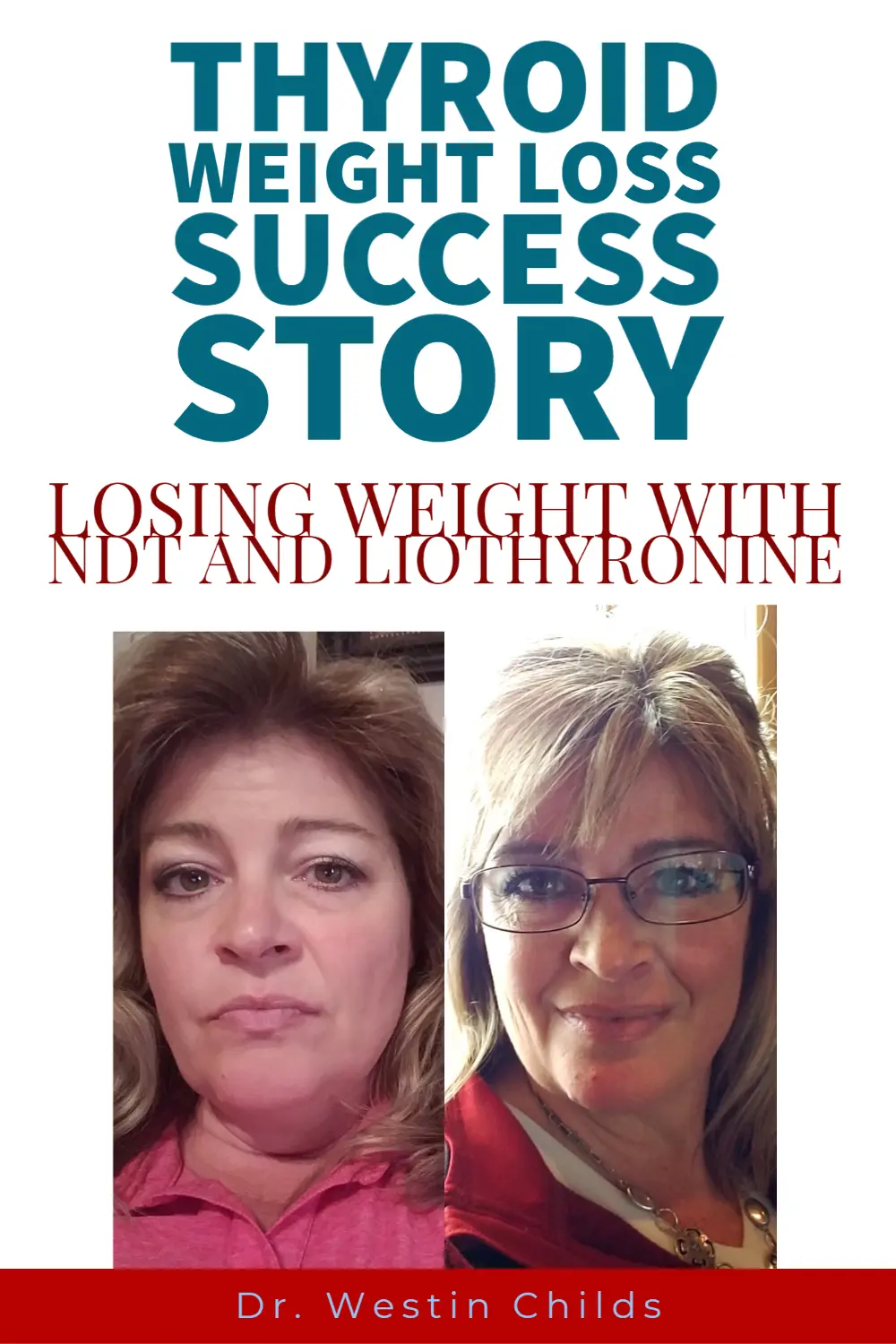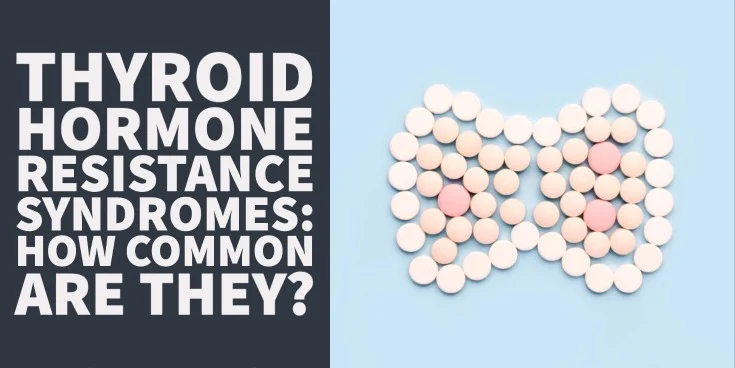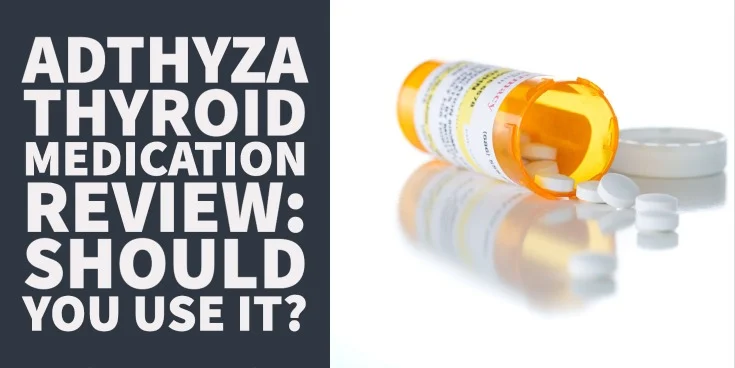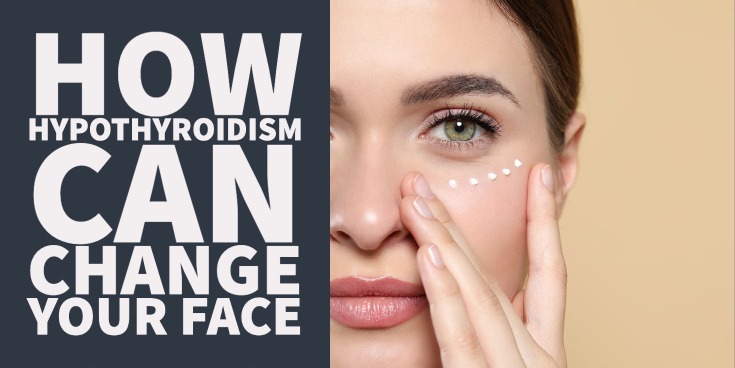I get some form of this question all the time:
What if I have hypothyroid symptoms but a low TSH? Can I still be hypothyroid?
Or what if I am already on NDT but still feeling symptomatic? What then?
The answer to this question is that, yes, you can still be hypothyroid with a “normal” TSH…
And I’m going to use this patient as a perfect example of how it can work and how to treat it.
This particular patient came to me already on 3 grains of NDT (Nature-throid) with energy levels in the 4-5 out of 10 range and who had recently gained 30 pounds.
Her TSH was suppressed (TSH < 0.05 on initial lab tests), but she was obviously still symptomatic and gaining weight.
If you fall into this category, or you are taking NDT but still symptomatic or you have a suppressed TSH on levothyroxine alone – then this case study should be helpful for you.
Fast forward 3 months after working with me and making some changes and she is now down almost 20 pounds, has lost 3 inches off of her waist, 2 inches off of her hips, and 2 inches off of her thighs, and is feeling “much more energetic and alive!”.
So how did we do it, and what changes did we make?
Low or Suppressed TSH with Hypothyroid Symptoms
The evidence is mounting for the concurrent use of T3 in addition to T4 thyroid hormone (1).
In fact, perhaps in 10+ years, this will simply be the standard of care (one can hope!).
What you probably already know is that NDT is a combination of T4 and T3 thyroid hormones.
In many patients changing from Levothyroxine or Synthroid to NDT is often enough to reduce symptoms and cause some degree of weight loss (though usually not much).
But, just like many patients can still have hypothyroid symptoms on T4-only medications, many patients can also have hypothyroid symptoms on NDT alone.
Why this happens is not entirely clear, but it appears to be related to T3 levels of thyroid hormone in the body and can be made worse by high reverse T3 levels.
Due to a variety of reasons (explained more below) your body may have adequate thyroid hormone in the pituitary (reflecting a state of pituitary euthyroidism), but low levels of free T3 in the tissues.
This condition can be diagnosed and tested by simply looking at some lab values in the serum:
Patients with this condition generally have low free T3, low to mid-range total T3, and normal to high levels of reverse T3.
Any of these conditions create an environment where the body has plenty of the storage form of T4 thyroid hormone, but not enough of the active form of thyroid hormone known as T3.
I have written about this in other articles and the conditions are known as tissue-level hypothyroidism (2) or thyroid resistance.
Now that we have established that it exists, how do you actually treat this condition?
What do you do if your TSH is already suppressed but you are still symptomatic?
Well, the most basic answer is to increase the amount of T3 in the body, and that can be achieved in a few different ways…
DOWNLOAD FREE RESOURCES
Foods to Avoid if you Have Thyroid Problems:
I’ve found that these 10 foods cause the most problems for thyroid patients. Learn which foods you should avoid if you have thyroid disease of any type.
The Complete List of Thyroid Lab tests:
The list includes optimal ranges, normal ranges, and the complete list of tests you need to diagnose and manage thyroid disease correctly!
Increasing T3 in the Body
In the case of this patient, we increased her T3 by simply adding more T3 to her total thyroid dose.
And this is how she responded:
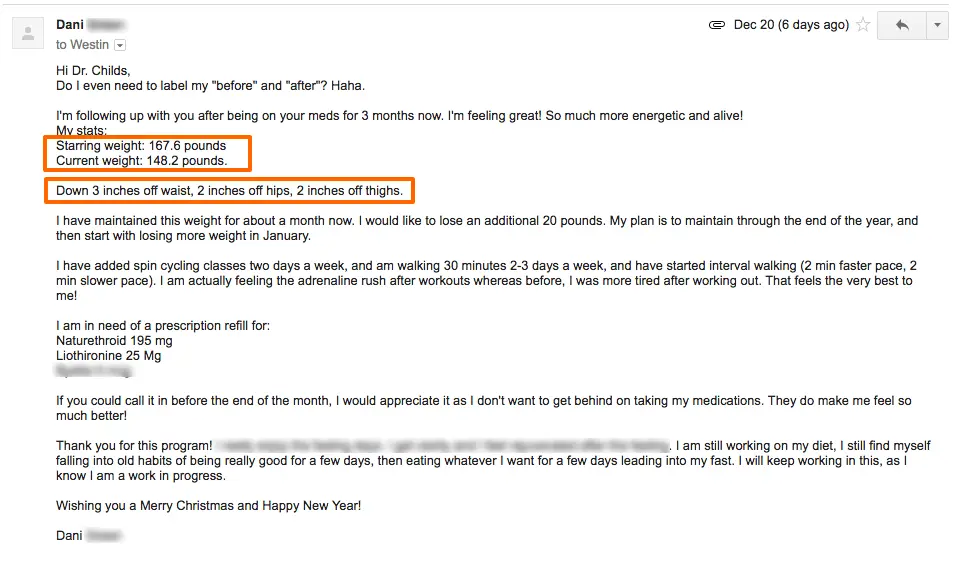
“Hi, Dr. Childs,
Do I even need to label my “before” and “after”? Haha.
I’m following up with you after being on your meds for 3 months now. I’m feeling great! So much more energetic and alive!
Starting weight: 167.6 pounds
Current weight: 148.2 pounds.
Down 3 inches off the waist, 2 inches off hips, 2 inches off thighs.”
As a direct result of simply adding Cytomel or liothyronine to her existing dose of NDT (already at 3 grains of 195mg), we were able to increase both her total T3 and her Free T3 levels and improve her overall symptoms.
As I mentioned previously, despite being on 3 grains of NDT (in this case Nature-throid) she was still gaining weight and had very low energy levels.
In fact, she had been on as high as 6 grains from another provider before coming to see me.
6 grains or 390mg and no changes in symptoms or weight loss except heart palpitations.
What’s important to understand here is that supplying the body with too much T4 will create an environment where the body will turn much of that T4 straight into reverse T3 which directly competes for binding with T3.
This creates a situation where thyroid hormone serum levels may be “normal” but not enough T3 is getting into the cell to do its job.
Because of this, she presented with the following symptoms:
- 30-pound weight gain over the last 3 years (now almost all gone)
- Energy levels of 4-5/10 (an improvement from 1-2/10 on Synthroid, but still low)
- Crashes at 3 pm every day (sustained by caffeine 200+ mg per day)
- Increased anxiety and depression
- Heartburn, constipation, and bloating
- Reduced sleep with a racing mind at night
As you may notice many of these are classic signs and symptoms of hypothyroidism, and she had all of these symptoms while on 3 grains of NDT and with a TSH < 0.05.
So to answer the question that everyone asks:
Yes, you can still have hypothyroid symptoms with a low or even suppressed TSH. It really just depends on what is happening at the cellular level.
But the even bigger question is why some patients need more T3 than others.
Why do some patients do well on T4-only medications, some on NDT medications and why do some need higher doses of T3?
The answer to this question is complex and really depends on the situation.
For starters, the more hormone imbalances you have (including leptin and insulin resistance), the more T3 you will need because these conditions create a pathway for more reverse T3 production.
In addition, it appears that genetics play a role in determining how much and what type of thyroid hormone patients will need.
Genetic polymorphisms in the deiodinase gene (3) may account for a majority of patients who simply don’t do well on T4-containing medications.
Changes in deiodinases will directly influence the conversion process of T4 to T3 or T4 to reverse T3.
Patients with “slow” enzymatic function will be at risk for developing high reverse T3 levels on T4-only medications like Levothyroxine and Synthroid.
On the opposite end of the spectrum, some patients with robust enzymatic function will rapidly turn T4 thyroid hormone into the active T3 hormone.
These “super converters” may explain why some patients can lose weight on T4-only medications and why some patients simply don’t tolerate excess T3.
It’s easy to get lost in this sea of information so let’s take it back a step and summarize it like this:
Each patient will require a unique amount of T4 and T3 thyroid hormones in their body.
This means that there is no “cookie cutter” approach to thyroid care.
Not every patient should be on Levothyroxine just like not every patient should be on NDT.
If you are not doing well on whatever thyroid medication you are on then you may fall into one of the categories listed above which may impact the ability of your body to properly convert and activate thyroid hormone.
If you relate to the patient in this case study then let’s talk about some of your options for increasing T3 in an attempt to help reduce your symptoms and cause weight loss…
#1. Adding T3 + NDT
One of the best and easiest ways to increase T3 in the body is by simply adding T3-containing medication to your current thyroid hormone replacement.
T3 in the form of liothyronine or Cytomel can be added to NDT or T4-only medications like levothyroxine and Synthroid.
In this particular patient, I simply added liothyronine (immediate release) in a slow titration to her existing dose of NDT.
The addition of the T3 in the body helped to outcompete the T4 and reverse T3 which allowed for higher tissue levels of T3.
This increase resulted in improved oxygen consumption (4) and mitochondrial energy production which manifested as an increase in energy and an improvement in her weight loss.
This was done with the addition of 25mcg of T3.
When you consider that each grain of NDT contains only 9mcg of T3 and 38mcg of T4, it’s easy to understand how even NDT can make thyroid conversion problems worse.
Adding 25mcg is like adding the equivalent T3 dose of almost 3 grains of NDT (without the addition of the T4).
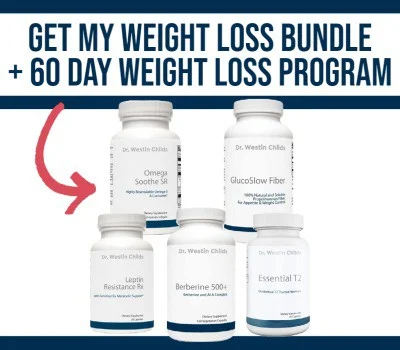
So even small amounts of T3 can make a big difference for many patients.
Many patients and providers make the argument that the ratio of T4 to T3 in NDT is sufficient for many patients and I would agree with them under normal physiologic conditions (5).
However, in the presence of inflammation, leptin resistance, insulin resistance, or obesity, there is an increased demand for T3 in the body.
This can then result in hypothyroid symptoms in patients on NDT.
Does every patient on NDT or T4 need more T3?
No, not necessarily.
If you are a patient taking NDT with a suppressed TSH who still has hypothyroid symptoms then you may benefit from more T3.
It should be pointed out that before you add T3 to your medication you should take all of the proper steps to improve lifestyle factors such as sleep, diet, stress, and exercise.
#2. Increasing T3 Naturally Through Supplements and Nutrients
Realistically you should be adding (or increasing) your total dose of T3 in addition to improving T4 to T3 conversion through supplementation.
In this patient case study, I used a combination of nutrients to boost thyroid production and conversion in addition to adding T3 thyroid hormone.
I’ve included this section because it can be difficult to find providers willing to prescribe T3 thyroid medication, so for many of you adding nutrients and supplements may be your only option to improve T3 levels and thyroid conversion.
I’ve written about how to increase T3 levels naturally here (so take a look at that post for more information).
In addition, I’ve also written extensively about the 13+ nutrients required for proper thyroid hormone production in this post.
Your main focus of supplementation should be on the deficiencies in your body and targeted supplements at improving known conditions that reduce T4 to T3 conversion.
This particular patient had a combination of the following conditions contributing to her low T3 and poor conversion: lack of sleep, high stress and increased adrenal demand (manifesting as low cortisol), SIBO/SIFO, and high levels of non-specific inflammatory markers.
As an example, I will show you what her supplement regimen consisted of:
- Supplements to improve both the depth and quality of sleep —> GABA + 5-HTP + Melatonin
- Supplements to improve adrenal function —> Adrenal adaptogens
- Supplements to treat SIBO/SIFO —> Herbal antibiotics/antifungals and potent probiotics
- Supplements to reduce inflammation —> The combination of LDN + curcumin
This combination of targeted supplementation with the addition of T3 thyroid hormone is very powerful and can significantly improve thyroid function and conversion.
Recap & Final Thoughts
When reading these case studies remember that each patient is unique and each patient will require different thyroid medications, different dosages, different medications, and different supplements.
I continue to write up patient case studies to show that you can get the results you are looking for, you just need to take the correct approach.
This approach should center on the evaluation of the complete thyroid panel while taking into account factors that influence both thyroid production and conversion.
Your treatment should not be solely focused on the TSH as a marker of your total body thyroid status.
Remember the TSH only reflects the thyroid status of the pituitary but doesn’t necessarily represent tissue levels of thyroid hormone.
The addition of T3 to NDT can be very powerful in patients who are still symptomatic despite making the right dietary changes and including exercise in their routine.
Doses as small as 25mcg per day can positively influence hypothyroid symptoms and improve tissue levels of thyroid hormone.
In some cases, it may be necessary to drop the total dose of NDT and T4 medication while increasing T3 to compensate for high levels of reverse T3.
For more case studies please see the following links below (these are all weight loss success stories from real hypothyroid patients):
- 50+ pounds lost on Victoza + LDN
- 55+ Pounds lost on WP Thyroid
- 40+ Pounds lost on NDT + T3
- 50+ Pounds lost over 6 months with AIP + Naturethroid + LDN
Now it’s your turn:
Are you on NDT with a suppressed TSH but still experiencing hypothyroid symptoms?
Have you tried adding T3 to your regimen?
What, if anything, has helped you?
Leave your comment below!
Scientific References
#1. https://www.ncbi.nlm.nih.gov/pubmed/24419358
#2. https://www.ncbi.nlm.nih.gov/pmc/articles/PMC3169863/
#3. https://www.ncbi.nlm.nih.gov/pmc/articles/PMC3219766/
#4. https://www.ncbi.nlm.nih.gov/pubmed/2484909
#5. https://www.ncbi.nlm.nih.gov/pubmed/12915350
